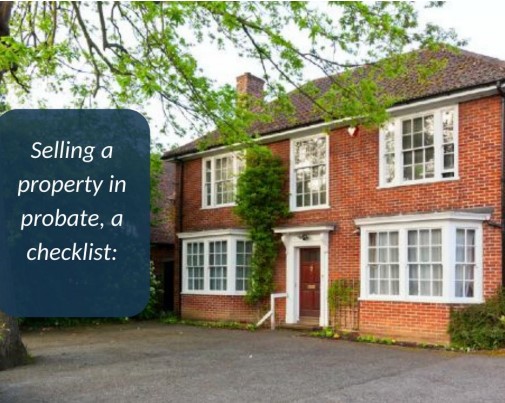What do I have to disclose when selling a house?
Attracting offers for your property can be time-consuming and stressful. Advertising your home, preparing everything for viewings, and answering questions from potential buyers can be challenging. And you will probably wonder exactly what do I have to disclose when selling a house?
Buyers have always carried the most responsibility for making sure they’re investing in the right property. But the legal requirements for sellers have increased over the last few decades to try and minimise issues. Since 2013, the description and sale of property has come under the Consumer Protection Against Unfair Trading Regulations (CPR), which means you could face prosecution for not sharing something which could legitimately impact the sale.
Do you have to disclose problems when selling a house?
Any issues considered relevant will need to be disclosed to a potential buyer, otherwise you could face legal action months, or years, after the sale has completed. In most cases, you will probably be able to judge what could impact a sale, but if you’re not sure it’s important to check with your solicitor.
You need to include anything of importance, whether or not the buyer has asked about it.
When you’re putting your home on the market and a buyer is interested, their solicitor will send a Property Information Form (TA6) to be completed. And this requires you to provide details about your house under categories including:
- Boundaries
- Disputes and Complaints
- Notices and Proposals (e.g. notices from a neighbour, council or government department)
- Alterations, planning and building control
- Guarantees and warranties
- Environmental matters
- Rights and informal arrangements
- Parking
- Occupiers
- Services
You need to be honest about the details, as failing to disclose anything in the TA6 will leave you open to potential court action in the future. Your conveyancing solicitor and estate agent will both be able to advise you on what should be included.
The Law Society provide a downloadable sample of the TA6 form to let you see what needs to be included. And if you realise something has been missed after completing the form, contact your solicitor and estate agent asap to rectify the situation.
The good news is that many issues might not interfere with selling your home. If you’ve previously solved a problem or settled a dispute with your neighbours, then showing paperwork or evidence that the matter has been sorted should help to reassure the buyers. And the potential new owner might have different priorities – a landlord or young working couple might not worry about noisy neighbours during the day, for example.
What needs to be disclosed when selling a house?
There are a wide range of potentially important issues you will need to disclose when selling a house. Essentially, it’s anything that might realistically impact whether a buyer will want to go ahead with the purchase.
Whether a particular issue is critical will depend on each potential buyer. But it’s always better to opt for honesty and avoid the complications of potential legal action. And being economical with the details is likely to cause a solicitor to ask for further clarification during the ‘additional enquiries’ phase of conveyancing. Which could lead to a sale falling through after lengthy delays, wasting everyone’s time and money.
It’s impossible to cover every eventuality, but typical issues of importance might include:
- Structural issues, including subsidence
- Existing flight paths or motorways, or anything planned
- Flooding issues
- Disputes with neighbours that resulted in written exchanges, or the involvement of the police or local authority
- Problems with pests, or Japanese knotweed
- A crime such as a violent death occurring at the property, a burglary or house fire
- Boundary issues or shared rights of way
- High levels of crime, or if your neighbours have an Anti Social Behaviour Order (ASBO)
- The presence of asbestos
- Ensuring that any significant fixtures and fittings you intend to remove are made known to the potential buyers
If the problem is historical, then you should include the details of repairs and fixes, along with supporting paperwork to show that there is no longer an issue.
When previous sales may have failed due to a survey showing a need for repairs, you will need to be open and honest with your property listing and details. It’s better for a potential buyer to know that they may have to budget for a roof repair, rather than finding out after spending time and money on a survey. Or after the sale has been completed.
What happens if you lie, or omit something important?
If the new owner discovers a problem, they may decide to take action under the Misrepresentation Act 1967. And the responsibility for proof is now on you as the seller to prove that you didn’t lie or knowingly fail to provide information.
A court action could find you guilty, and order you to pay damages, which could potentially cost tens of thousands of pounds. Or in the worst case, you could be issued with an Order of Rescission which effectively means the sales contract is treated as non-existing, and everything should be returned to how it was pre-sale.
Which means you could be forced to buy back your old home, and cover the buyer’s expenses, including legal costs and mortgage interest. And that could be catastrophic for your finances, especially if you’ve already bought a new property.
The right to rescind normally needs to be made within six years under the Limitation Act 1980. So, a new owner will have plenty of time to discover if you’ve been economical with the truth about a significant issue.
How to sell a house with disclosed problems
If your property does have one or more serious issues, then you are still able to sell it via the normal routes of private listings, estate agents, auctions or home buying companies. But you’ll have to accept that it might achieve a lower valuation and asking price.
Depending on the exact issue, you may be fortunate and find one or more buyers who aren’t dissuaded from making a good offer. But if you’re struggling to sell, then don’t panic.
A property auction is one option, but you’ll be tied to the winning bid. If your home isn’t likely to be in high demand, you could find you get much less than the true value.
The other choice is to ask National Homebuyers for a fast house valuation and cash offer. As experts in buying and selling houses across the UK, we’re able to help you complete the sale in just a few days, with no estate agent or auction fees to pay.
If you are looking to sell your home quickly contact us today on 08000 443 911 or apply online now and a member of our friendly team will be in touch.






